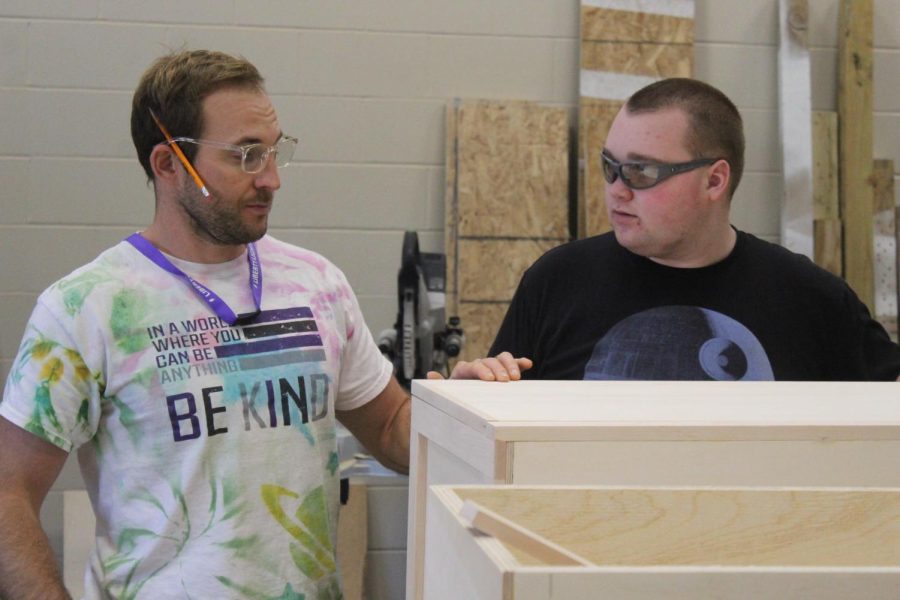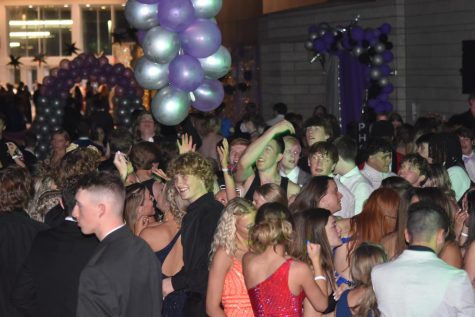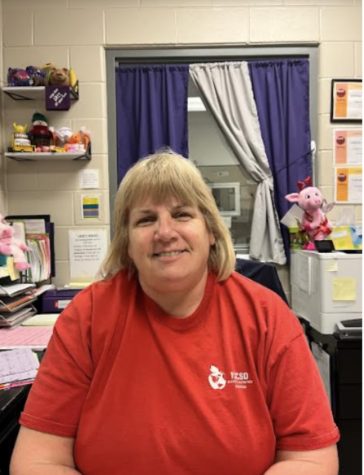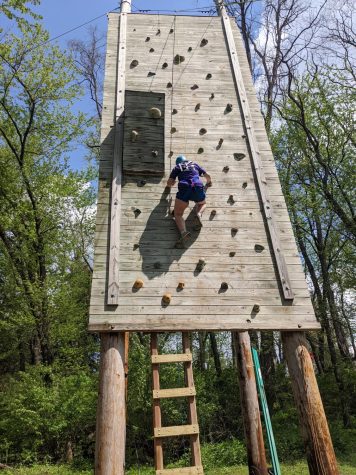Successful or Unsuccessful?
What makes students and teachers successful or unsuccessful? Liberty students and staff share their thoughts.
Micah Casper, teacher, looking over a student work box during class.
What makes a successful teacher and an unsuccessful teacher? Does it have to do with how they educate their students? Or how their personalities affect the way they teach in the classroom? What about students? What really separates the successful from the unsuccessful?
Successful teachers are generally more liked among their students. Teachers are really engaged in classes, making sure they are getting to every detail. They make sure they have all of their lesson plans planned out, and not have them be monotonous lectures.
“I like when [teachers] go over the notes with the class, instead of thinking you know how to do something, after explaining it really fast,” said Tanner Knight, junior.
Another big reason that successful teachers are liked among their students is the personality they bring to the classroom. They bring fun engaging things to do and can make the average lesson become way more interesting. They encourage their students to get their own work done most of the time.
“The teacher brings the energy to the classroom and starts the class. All the students are focused on the teacher,” commented Carter Webb, junior.
Unsuccessful teachers do a little bit of the opposite. They have boring lectures that make students sleep through their classes. These teachers are not very much liked among their students. Some of these teachers have unengaging personalities, which doesn’t help bring life to the classroom.
“Teachers who go fast without asking you if you have questions [are unsuccessful]. They don’t explain the criteria to the students, and we get lost in the class having no clue what is going on,” said Kennedy Daugherty, junior.
When students are confused about what is going on in the class, it certainly is hard for them to learn. The goal of the school is to learn the criteria that are taught. Without an engaging teacher, students have a hard time focusing.
“When [the teachers] stand up there not knowing what they’re doing, and don’t really engage in the class, it is hard for us to learn,” said Knight.
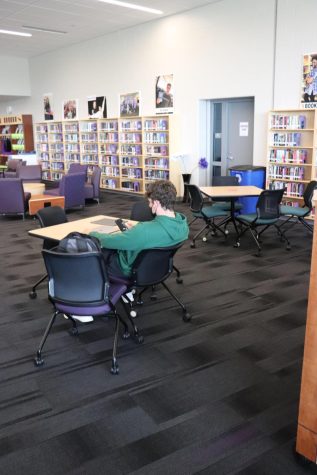
On the other hand, how do the teachers view their students as successful and unsuccessful? Is it their work ethic? How much do they pay attention? Study habits? Do they ask questions when they are struggling? Communication skills between the student and teacher? All these play into factors as a difference between these two types of students.
“Characteristics of a good student are they are engaged in class. [This] means they are listening, writing things down when the teacher writes, when they aren’t sure about something they ask right away. If they miss class they are assertive. They take care and make sure their stuff is made up as they’d like,” said Shishonee Hughes, science department.
The more engaged that a student is, the more likely they are to have a better outcome in the class. During class, students are focused, but may not always understand what is going on. They demonstrate being better students by coming in on their own time, to get a better understanding of the criteria.
“Other tendencies are looking for ways to improve themselves, in the class, such as not being satisfied. They are students that stay on top of their workload,” said Ryan Kelly, math department.
An unsuccessful student is around the opposite of this. Not paying attention. Not turning in work. Goofing around during class. Not asking questions, nor ever wanting to get better. They pass with the lowest of the low, not caring or paying attention to what they want to do.
Ashley Cunningham, English and journalism, stated: “Students who are not successful, I think they struggle with a few different things. I think a very big component about that first and foremost is the attitude issue. I think it’s because they don’t necessarily understand the importance of their education. I’m not a believer that every single kid needs to go to college after high school. There are so many opportunities for one path, but life is not going to be easy for someone who is not able to graduate high school.”
Students do have the ability to control their education, but some may experience obstacles that may limit their academic potential. Some students have to work to support themselves or their families, so work is their very first priority. This means they usually have less time on their hands to get their school work done. However, many teachers are willing to support these types of students.
“I try to make my classroom where anyone can feel welcome, especially those kids that have to overcome some of those more difficult circumstances. Whether it’s making sure I have a safe space in my room or having food in my cabinets. Make sure there is an adult somewhere that is on their team,” said Cunningham.
Behind every successful student is a strong work ethic, determination to get their work done, and support from their teachers. Behind every successful teacher is the love for teaching, along with respect from their students.



